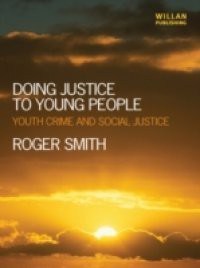There is an impasse in current thinking about youth crime and justice, represented by punitive and harmful practices, and liberal objections to these processes on the other, based predominantly on arguments for 'rehabilitation'. This book aims to arrive at an alternative strategy for resolving the tensions between young people - especially those on and beyond the margins - and the social world which frames their lives.The book is split into three sections:Part 1 focuses on young people, their attitudes and behaviour;Part 2 considers the way in which their behaviour is constructed as criminal and then addressed;Part 3 considers the limitations of current practices and potential alternatives.Within this broad framework, the differentiated and contested nature of young people's experiences and our (and their) ideas of 'youth' can be counterposed to prevailing one-sided and often discriminatory assumptions about them; in order then to open up questions about the nature and purposes of the youth justice system, and to introduce some possibilities for reconstructing it according to fundamental principles of rights, welfare and social justice.Doing Justice to Young People will be essential reading for anybody working in or studying youth crime and youth justice.

